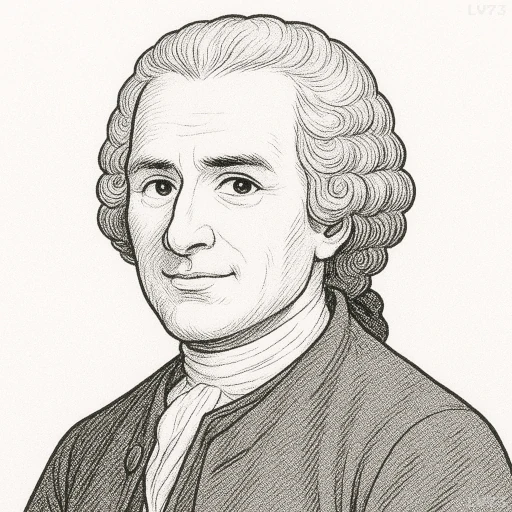“Reading, solitude, idleness, a soft and sedentary life, intercourse with women and young people, these are perilous paths for a young man, and these lead him constantly into danger.”

- June 28, 1712 – July 2, 1778
- Born in Geneva
- Philosopher, political philosopher, writer, composer
table of contents
Quote
“Reading, solitude, idleness, a soft and sedentary life, intercourse with women and young people, these are perilous paths for a young man, and these lead him constantly into danger.”
Explanation
In this quote, Jean-Jacques Rousseau expresses his concern about the potential dangers of certain behaviors and influences on young men. He warns against the overindulgence in reading, solitude, idleness, and a sedentary lifestyle, which he views as potentially leading to moral decay or distraction from more constructive or virtuous activities. Additionally, Rousseau cautions against being overly influenced by women and youth, implying that relationships or associations with these groups can sometimes encourage superficiality or lead a young man astray. Rousseau is emphasizing the importance of a balanced, disciplined life, where intellectual pursuits and social connections are tempered with physical activity, practical engagement with the world, and a strong moral foundation.
Historically, Rousseau’s concerns about these influences reflect his broader philosophical views on education and society. In Emile, or On Education, Rousseau argues that children, especially young men, should be educated in a way that aligns with their natural instincts and developmental needs, focusing on active learning, moral integrity, and practical experience rather than idle contemplation or distractions. Rousseau believed that a life too focused on theoretical knowledge, leisure, or external desires could lead young people away from self-discipline, virtue, and a true understanding of their place in the world. His critique also hints at his broader skepticism of society’s influence on individuals, especially how it encourages people to focus on fleeting pleasures or superficial relationships instead of more substantive goals.
In modern times, Rousseau’s warnings might resonate with discussions about the impact of modern technology, social media, and idle entertainment on youth development. With the prevalence of digital distractions, excessive screen time, and a culture of instant gratification, there are concerns that young people today may be similarly at risk of becoming detached from meaningful, active engagement with the world around them. Rousseau’s quote serves as a cautionary reminder of the need for balance in life—encouraging young individuals to cultivate discipline, physical activity, social responsibility, and moral clarity, rather than becoming overly absorbed in intellectualism, sedentary habits, or fleeting pleasures.
Would you like to share your impressions or related stories about this quote in the comments section?

